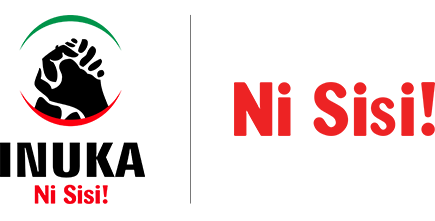Ms Constance Hamilton
Assistant United States Trade Representative
Office of the U.S. Trade Representative,
1724 F Street NW., Washington, DC 20508.
Re: Trade Negotiations under the Kenya/United States Strategic Trade and Investment Partnership (STIP) Must Address the Common Interests of Both Countries.
Dear Amb. Hamilton,
We welcome you to Nairobi for the trade negotiations with the Kenyan Government for the STIP. Before we state our issues, we invite you to appraise yourself with the World Economic Forum’s scenarios on the Future of Mining and Metals until 2030. From this analysis, we understand that the world has changed from a unipolar axis to a form of rebalanced globalism that is multipolar. We invite the United States (US) to approach these negotiations from this understanding. On the occasion of these negotiations, we strongly feel the US should consider negotiating the STIP for the common good of both Kenya and itself. Specifically, we invite the US to consider moving away from its persuasions of the political philosophy of Adam Smith and zero-sum game theory and consider the persuasion of Nobel Prize winner John Nash and his seminal works on equilibrium game theory. In simple terms, we invite the USTR to consider both the self-interest of the US as well as the common good between itself and Kenya. This is the only way forward.
The first step of this common good approach is the question of transparency. The US has maintained an opaque approach to these negotiations preferring to only engage Government and not availing the negotiating texts to other stakeholders. This is not negotiation in good faith. If indeed the agreement is a partnership, it should be undertaken in a transparent manner. We note that Kenya has in the past adopted transparency in the negotiation of the East African Community/European Union Economic Partnership Agreement (EAC/EU EPA) by availing negotiating texts to all stakeholders under the Kenya Post-Lomé Trade Program (KEPLOTRADE). While your good office has indicated it only has good intentions in these negotiations, we need to verify that this is indeed the true position. That verification will be done through the making available of proposed texts to all concerned stakeholders. To ensure full participation, all negotiation rounds should be announced beforehand and open to broad public stakeholder engagement in both Kenya and the U.S. Finally, we ask that all related materials and consolidated texts be published in a timely manner after each round of negotiations so that the public has the opportunity to review and comment on each proposal before the agreement is finalized.’
See https://www.youtube.com/watch?v=4jCA0_3Pyvo 1
We feel that the US has not demonstrated good faith from the onset of these negotiations. This is because it has pushed Kenya to remove the digital services tax as well as legalize biotechnology, two key planks of policy leverage that could be useful in the negotiations. Coming against a background of a serious revenue shortfall and a limited base for domestic resource mobilization, we feel that the US is being selfish and not considering accommodating Kenya’s ability to fund its budget.
The second concern we have if there is to be a STIP is the scope of this agreement. Without more information about this agreement (e.g. the negotiating texts), it is difficult to provide relevant comments. However, based on the information in the STIP launch statement, we strongly feel that there should be no:
- provisions affecting agriculture in the STIP. However, if there are provisions relating to agriculture in the STIP, there should be no provisions in the STIP that restrict Kenya’s agricultural regulatory or policy space e.g. in the agriculture or other chapters
- digital trade chapter negotiated in the STIP. However, if there are provisions relating to digital trade in the STIP, they should not restrict Kenya’s regulatory or policy space, including there should be no provisions:
o Restricting customs duties on electronic transmissions
o Restricting the use of digital services taxes
o Requiring cross-border data flows to be allowed or restricting data localisation requirements.
o Restricting regulation of electronic authentication/electronic signatures
o On source code/algorithms
o Requiring non-discriminatory treatment of digital products
o On interactive computer services of the type in Section 230 of the USA’s federal Communications Decency Act. good regulatory practices provisions. However, if there is such a chapter, it should not include provisions:
o On regulatory impact assessments
o Requiring the review of existing measures
o Requiring comments to be allowed by foreign companies on proposed measures
o On services domestic regulation.
- trade facilitation provisions requiring Kenya to accelerate its implementation of the WTO’s Trade Facilitation Agreement or requiring Kenya to take additional trade facilitation measures.
- restrictions on Kenya’s ability to provide fisheries subsidies (e.g. in the environment chapter).
- provisions that undermine the ability to take anti-corruption measures (e.g. via the good regulatory practices or digital trade chapters).
We also note with concern that this agreement does not have Congressional oversight after the expiry of the Trade Promotion Authority. The action by the United States to stack the deck with negotiators drawn from the private sector essentially means that Kenya is negotiating with the private sector! We strongly feel that there is need to pose negotiations and have the Kenyan Parliament appraised on the salient issues before proceeding to at the very least provide some level of oversight.
Once more information is available about the content of the STIP negotiations we are likely to have further comments.
Sincerely,
1. EconewsAfrica
2. KenyaSmallScaleFarmersForum
3. KongamanolaMapinduzi
4. OkoaUchumiCampaign
5. FutureofKenyaFoundation
6. AnglicanDevelopmentServices–Kenya
7. CommunityAdvocacyandAwarenessTrust
8. KenyaHumanRightsCommission
9. UjamaaCentre
10. The Kenyan Peasants League
11.Kenya Debt Abolition Network
12.Kenya National Interface Team
13.East African Tax and Governance Network 14.SEATINI Uganda
15.Growth Partners Africa
16.Kenya Food Rights Alliance
17.INUKA Kenya Ni Sisi Ltd.
18.Tax Justice Network Africa
19.Center For Generational Studies – Kenya 20.Premier SHEQ Systems Advocacy Group
21.Dr. Alutalala Mukhwana and Company Advocates 22.Peace Actors Forum, Kenya
23.Global South Inclusion Consulting
24.Jesuit Justice and Ecology Network Africa
